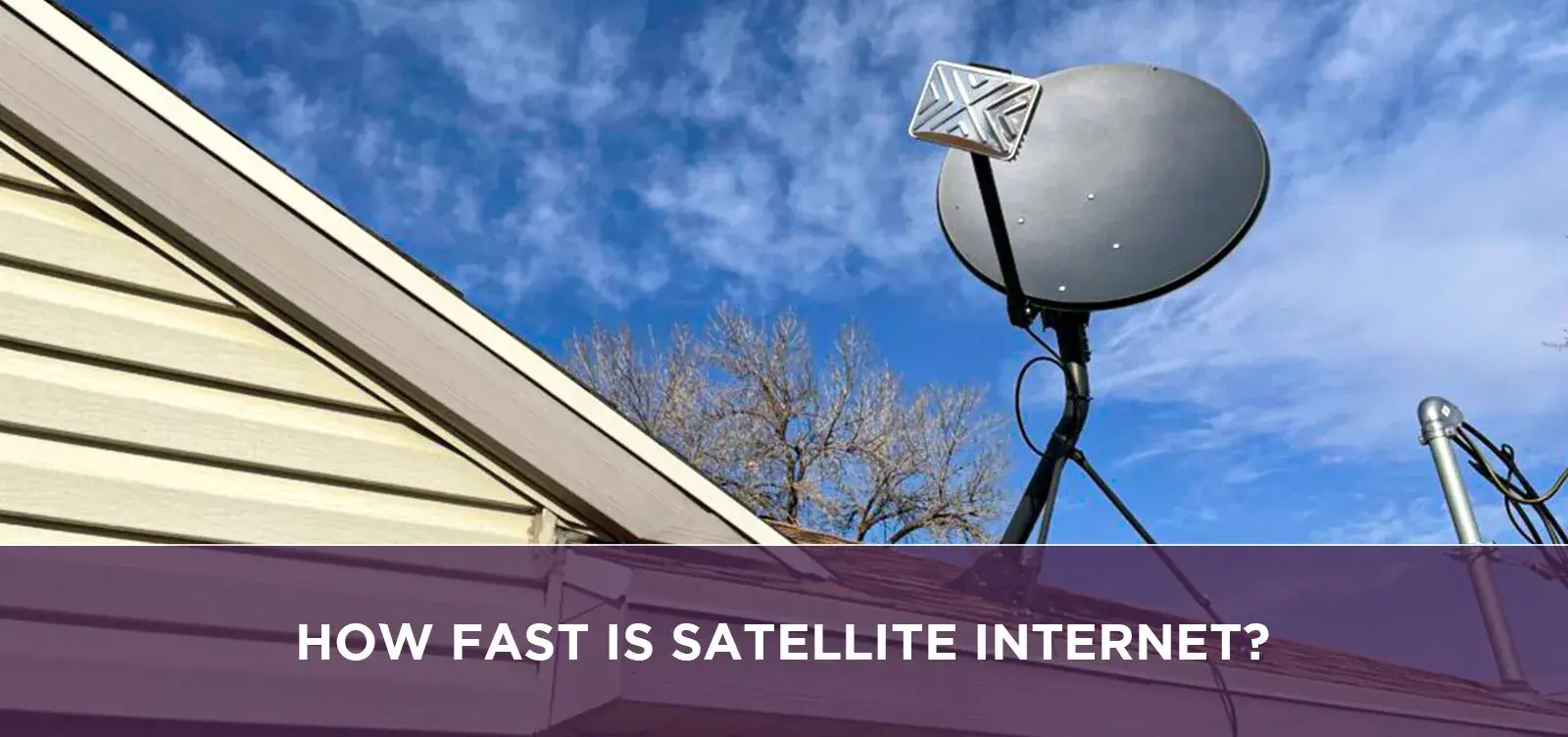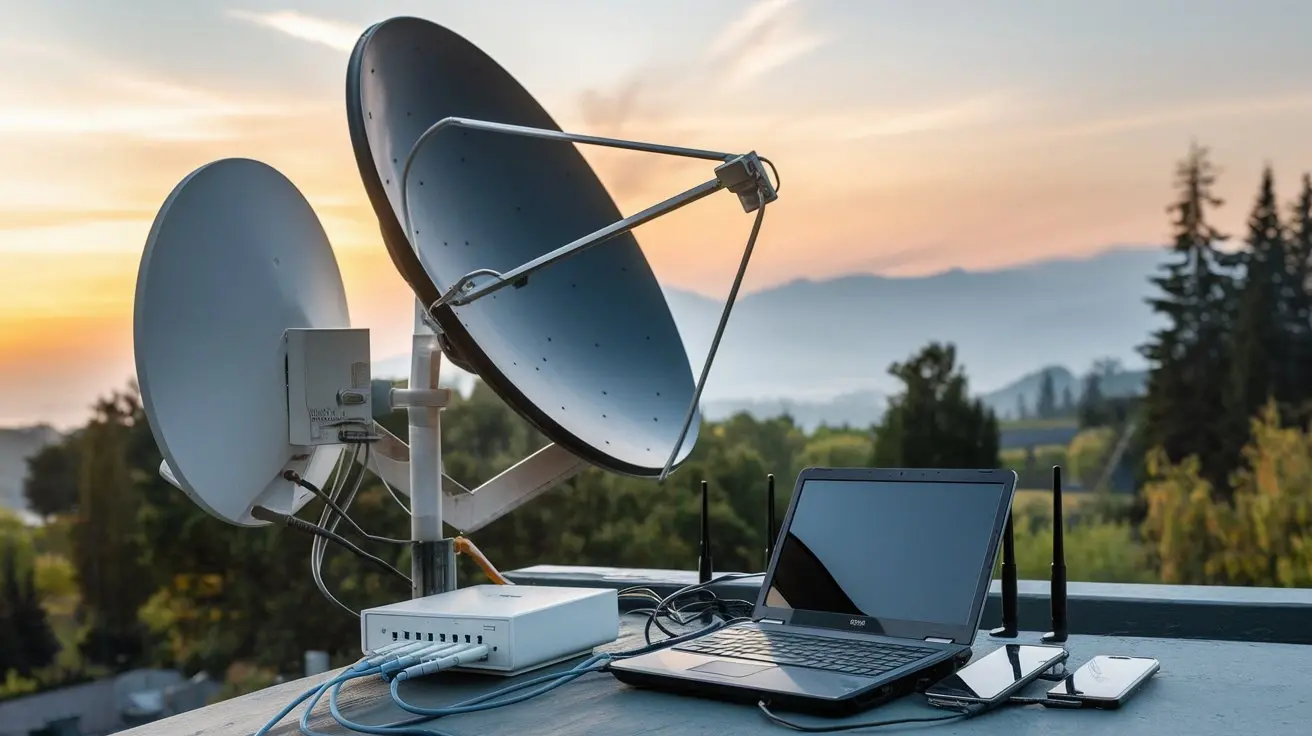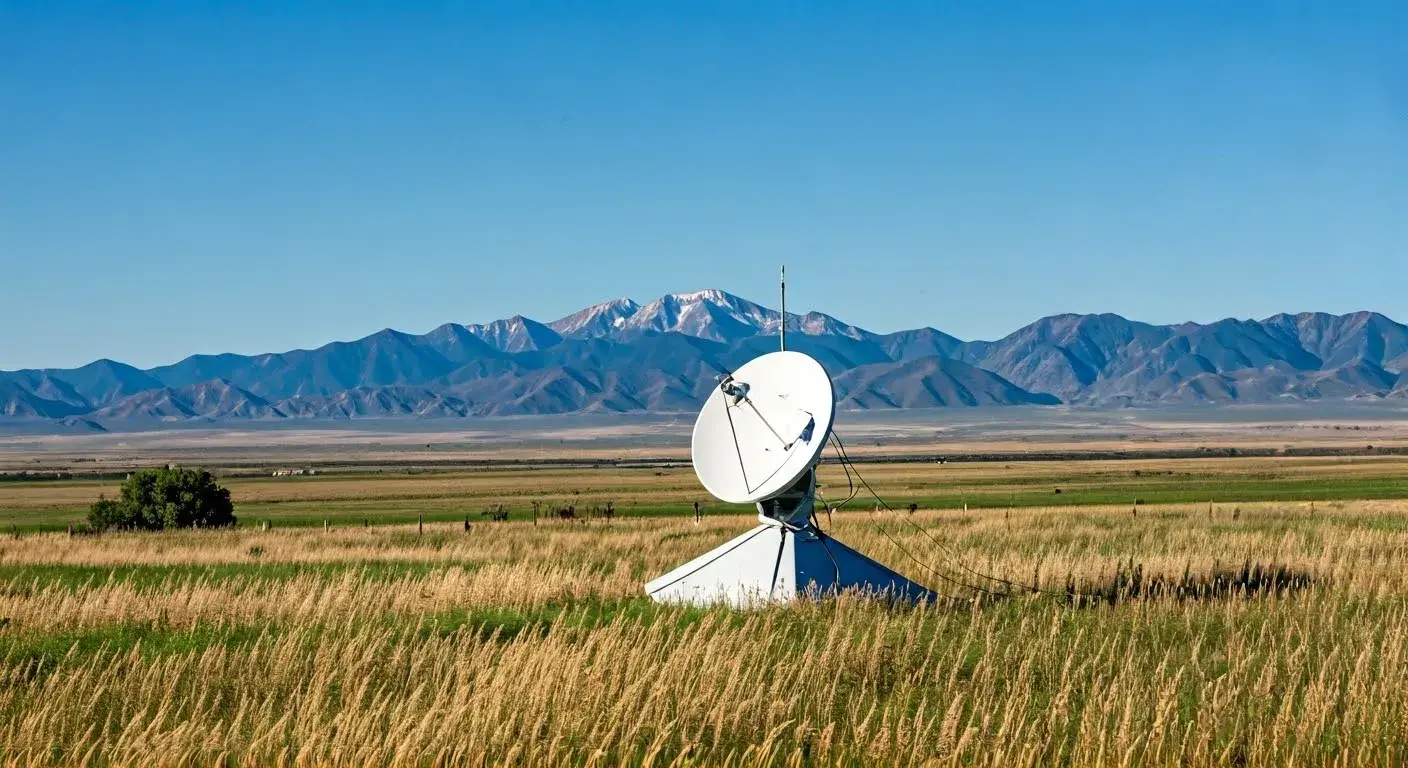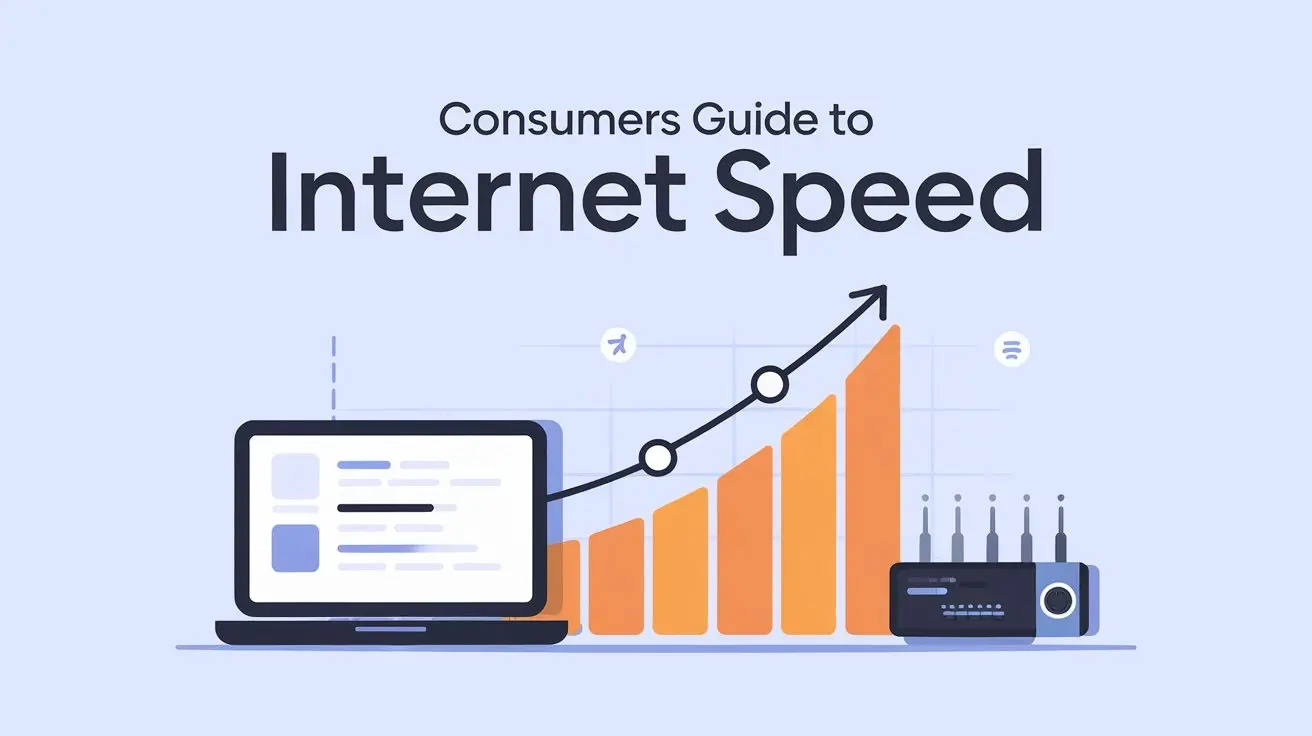
Have slow internet speeds ever annoyed you? Particularly in rural locations, using the web might seem as if you are caught in the dark ages. But supposing we told you there was a solution that guaranteed lightning-fast speeds wherever you live? That's satellite internet. But just precisely, how fast is satellite internet? This article will go over the nuances of this technology to assist you in determining if it is the best fit for you.
Understanding the basics of satellite internet
A Satellite internet connection is one wherein internet signals are sent to and from your internet service provider (ISP) via a satellite. The process begins when your ISP delivers a fiber internet signal to a satellite orbiting Earth. Your satellite dish receives the signal then, and it is linked to your modem to convert it into a usable internet connection. For those living in remote locations without cable, DSL, or fiber, satellite internet is usually a decent substitute.
Factors that affect satellite internet speed
- One of the primary determinants of satellite internet speed is the data allocation limit established by companies such as Viasat and HughesNet. Your data speed declines greatly if you over this limit, which makes browsing the internet or watching movies more difficult.
- The high latency of satellite internet technology may compromise real-time applications such as gaming and video chat. The time it takes for signals to return and traverse from the satellite generates this delay.
- Slower internet speeds or loss of service might result from satellite signal interference caused by bad weather like storms or intense rain. This is so that the satellite may have more difficulty transmitting data when air circumstances disturb the transmission.
- Internet speed may also be impacted by satellite location in orbit. Because its signal travels shorter distances, lower orbit satellites provide quicker speeds. Higher-orbit satellites may, on the other hand, have longer signal travel lengths resulting in slower speeds.
- Your internet speed may also be affected by your satellite dish and modem hardware restrictions. Older equipment or improper installation of your tools may cause reduced rates or maybe loss of connection. Correct equipment maintenance and updating can assist in raising your internet speed.
What is the average speed of satellite internet?
The Federal Communications Commission (FCC) regards the average speed of satellite internet—based on verifiable data—about 25 Mbps as broadband internet speed. It is noteworthy, nevertheless, that real speeds fluctuate and are not certain. Usually, the speed of satellite internet services determines their pricing depending on their offered value. Faster packages cost more, particularly considering satellite internet companies like Viasat, which has rates ranging up to 100 Mbps. Conversely, HughesNet's plans only reach 25 Mbps, hence the average speed of a satellite internet service plan is at this level. The limitations of satellite technology mean that satellite internet services are more costly than cable or fiber connections. These include speed, data, and tools such as home satellite dishes and geostationary or low-earth orbit satellite systems.
How does satellite internet speed compare to other types of internet?
One kind of internet service depending on beamed signals from satellites circling Earth is satellite internet. Satellite internet offers several special advantages and shortcomings when compared to other kinds of internet. The fact that satellite internet may be accessible from anywhere in the United States provided there is a clear view of the heavens makes one of its main benefits available. For remote communities without cable or fiber connectivity, satellite internet is usually the only practical choice. Satellite internet does, however, usually cost more than other forms of internet and has data restrictions, which can restrict a user's consumption capacity. Moreover, the increased distance the signals have to travel from orbit to the user's modem makes latency a frequent issue with satellite internet. Still, satellite internet companies like HughesNet and Viasat give download rates of up to 100 Mbps, which is sufficient for most typical use including browsing and online streaming. Still, cable or fiber internet would be better suited for online gaming and other low-latency activities. Many choose cable internet as it usually offers greater download speeds and lower costs. Conversely, fiber internet is only accessible in a few places but is well-known for its extraordinary speed and dependability. In the end, the particular demands and location of the user will determine the appropriate kind of internet they utilize.
Ways to Optimize Your Satellite Internet Speed
Several pieces of advice exist to maximize your satellite internet speed. You should first be sure your satellite receiver or dish is in excellent repair. This includes looking for any damage to the dish and wires, eliminating any obstacles such as trash or snow, and making sure the dish is orientated correctly toward the southern sky. Minimizing video streaming and maintaining low data consumption can help you maximize your modem and router, therefore preventing going over your allocated bandwidth and poor internet connections. If you discover you are running low on priority data every month, another choice is to update your data plan. Should everything else fail, one may want to investigate new satellite providers like Starlink Internet, which provides low-latency internet connections across the US and Canada at faster speeds. Following these guidelines helps satellite internet customers make sure their connection is maximizing their possibilities.
Conclusion – Is satellite internet right for you?
Ultimately, your particular requirements and situation will determine if satellite internet is appropriate for you. Satellite internet may be the best and sometimes only workable solution if you reside in a distant or rural region where conventional internet connections do not reach and if you lack access to fiber or cable internet. Though the distance the signal must pass causes the delay for this service to be inherently greater, severe weather may sometimes disrupt satellite communication. Furthermore, given restricted speed, satellite internet may not be the greatest choice for individuals who depend significantly on VPN services. When thinking about satellite internet, be important to weigh providers and plans to see which one best fits your budget and need. All things considered, satellite internet might be a dependable and reasonable choice if you require connection but lack other kinds of internet.
Call (855) 212-8877 to get a satellite internet connection now!





